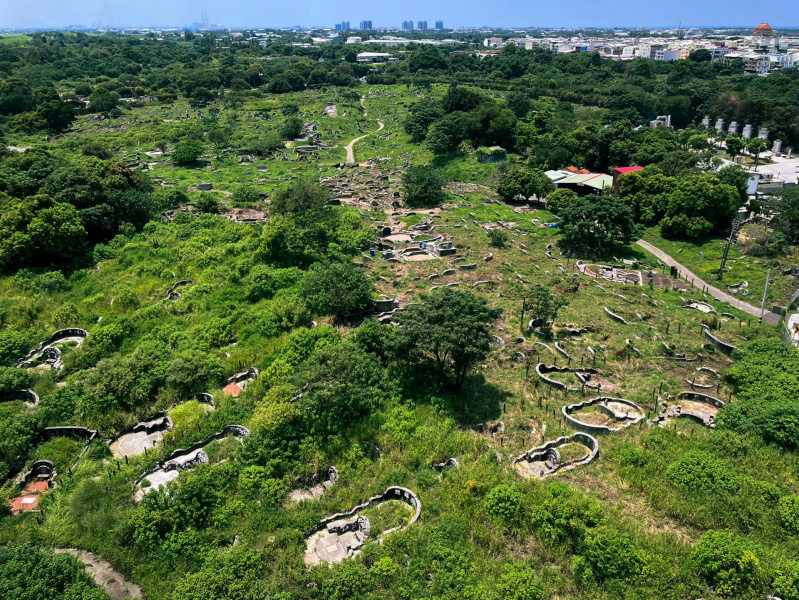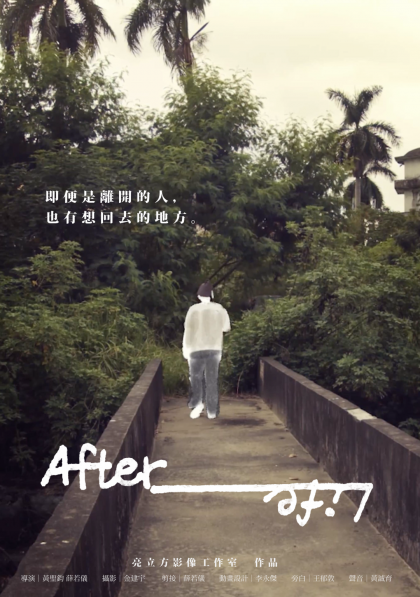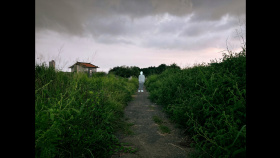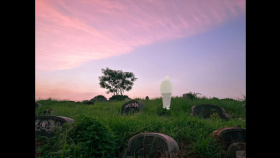Afterlife
Country:
- Taiwan
Language:
- 台語/閩南語
Format:
- DCP
- Life and Death


Synopsis
Jintaro used to design tombs, he had no choice but to clean up the cemetery when fewer people chose burial. He always goes to the Nanshan Cemetery after breakfast. He cuts the grass around his wife’s tomb, cleans up the surroundings, and examines each grave alongside the path he walked.
After he passes away, the path that Jintaro used to walk, and his wife’s grave, which has not been swept anymore.
On this day, Jintaro returns to the Nanshan Cemetery, where he spent half his life step by step.
Director Statement
All kids born and raised in Taiwan share this experience: every time dad drives by a public cemetery in the country, someone at the front seat always says, “turn around, don’t look.” It’s unclean, they always add. The grown-ups never talk about death as if death does not exist. No one ever tells a kid where people go after they die or why these graves were built. These questions resurfaced when I started filming Jintaro, a grave designer born in Tainan during the Japanese occupation. Jintaro had worked at the Nanshan Municipal Cemetery for more than six decades. His work started every day after breakfast. He took me to see all kinds of graves and explained to me the feng-shui behind the design with such passion that I even learned from him the entire family history of each grave he has built. The story would always start with “the later generations grew with increasing wealth…” and end with “but they declined very quickly…”. On every tomb-sweeping day, the families would come to the cemetery and ask Jintaro to lead them to the family grave through bushes and grasses. Since the 2010s, the local government has encouraged cremation instead of burial, which resulted in reduced work opportunities for the grave designer, and Jintaro became the guard of the cemetery. He spent four to five hours everyday tending the huge cemetery. “I have spent more time at the cemetery than at home in my life”, he has said to me so many times. The last time I saw him he said that again with a big smile on his face. Jintaro died last summer, at the age of 80. Without Jintaro at the Nanshan Cemetery, the paths to the graves disappeared and are now covered by grass. Some graves are now seen with a red notice from the municipality saying the grave should be relocated soon, and some graves are painted red numbers by the municipality for management purpose. Jintaro spent his life building houses for the dead, but when he died, he became ashes resting in the columbarium, separate from his wife who was buried in the Nanshan Cemetery sitting across the street. Jintaro once told me that he wanted to stay in the cemetery after he died, too. If Jintaro could talk right now, what would he say? Would he still go to the cemetery everyday before dawn? As I browse through all the clips and materials, I wondered: what can I do to bring Jintaro back?
Festivals & Awards
2023 Golden Harvest Awards for Outstanding Short Films - Shortlisted for Best Student Experimental Film
Team
- Director
- Director
- Producer
- Production


